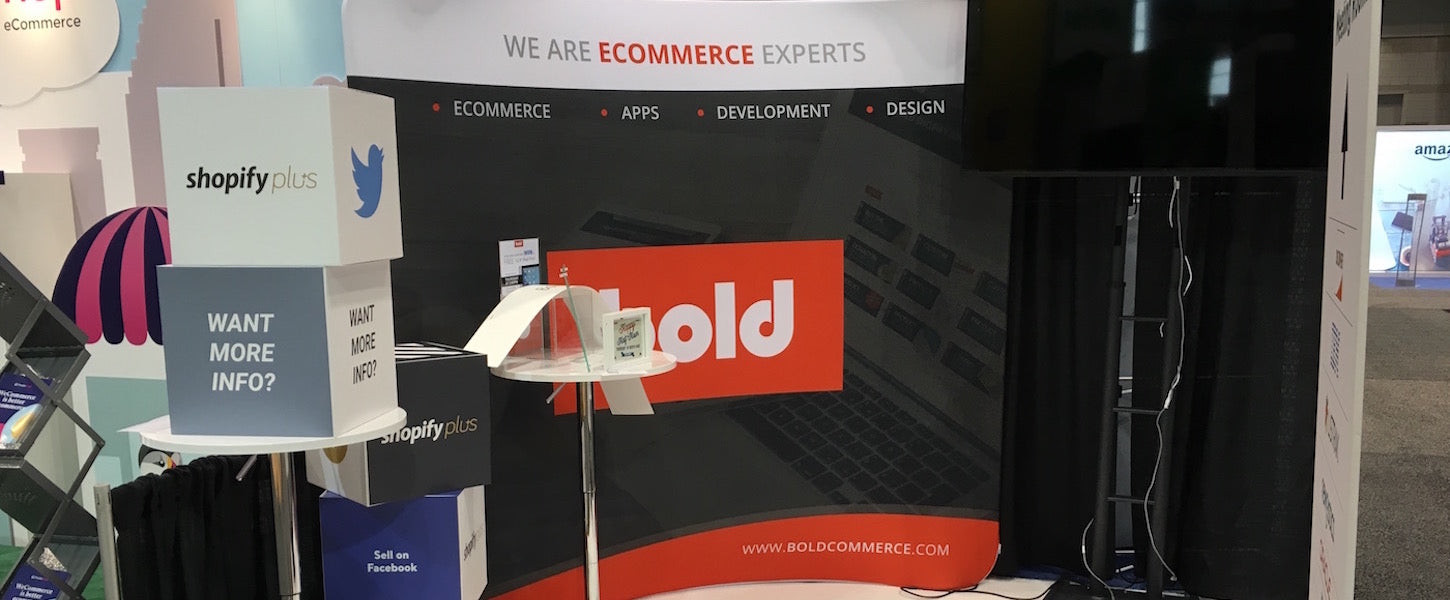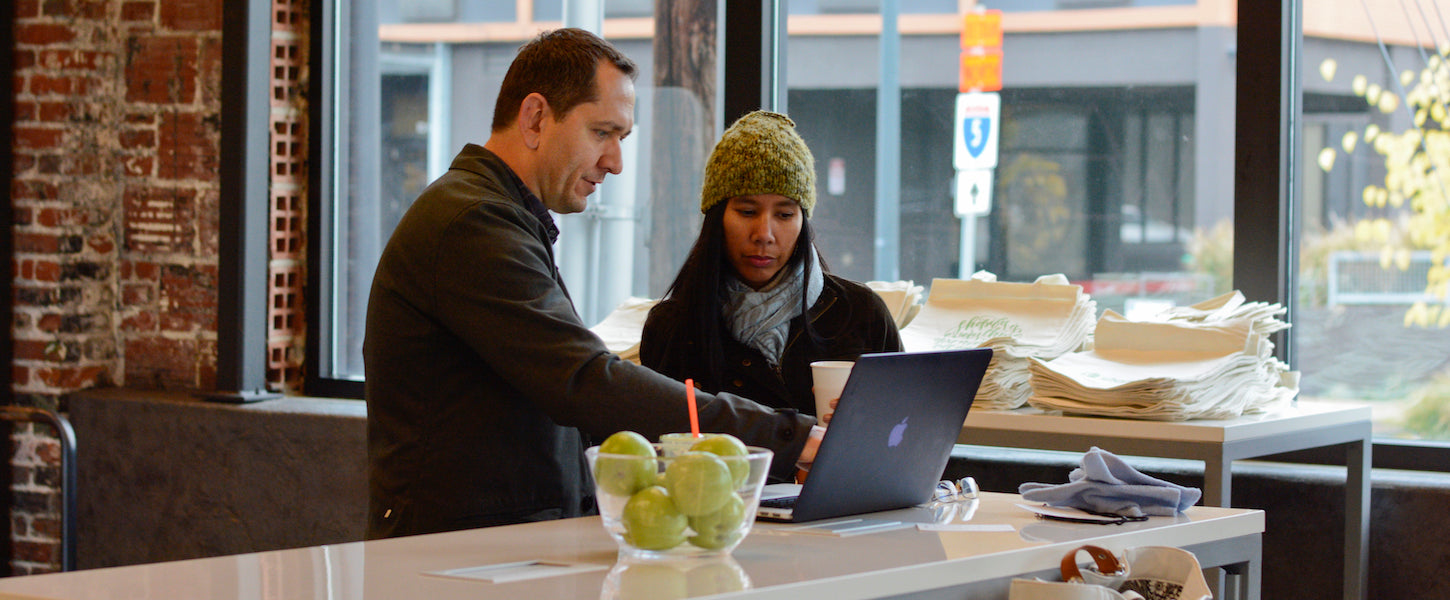Offline lead generation is a strategy that is often overlooked by freelancers and agencies working in the web design industry. Due to the digital nature of your work, it’s easy to focus your marketing and new business acquisition efforts online. But in a digital world, offline marketing gives you direct face-to-face interactions with potential leads, and can go a long way in building a reputable brand for your design or development business.
This style of lead generation can be a long-term game. Leads aren’t likely to make a decision to work with your firm right away, and will probably require a series of interactions with you before they feel comfortable enough to become your newest client.
That’s okay because the value of these offline tactics isn’t that they’ll result in direct conversions, from lead to paying client immediately. Rather, they give your business an opportunity to be in front of large, untapped audiences that you can begin nurturing down your sales funnel.
To help you get started, we’ve put together a collection of four effective, offline lead generation tactics that will help you find potential new clients for your web design freelance or agency business.
Let’s take a look.
You might also like: How to Host a Shopify Meetup
1. Host a workshop for local entrepreneurs
 Workshops present a unique opportunity for you to network face-to-face with local businesses in your area. Not only does this type of event give you a chance to directly engage with potential leads in a meaningful way, but they also give you a platform to position yourself as the local expert in your field.
Workshops present a unique opportunity for you to network face-to-face with local businesses in your area. Not only does this type of event give you a chance to directly engage with potential leads in a meaningful way, but they also give you a platform to position yourself as the local expert in your field.
By showcasing your technical expertise and capabilities, attendees will be more likely to think of you as the go-to person for all things ecommerce or web design when they’re in the market for a consultant.
Even though you may be eager to pitch your services to attendees, it’s important to remember that they signed up for your workshop to learn how to improve their business, not to be pitched a business.
Focus on creating a memorable learning experience by providing them with tangible insights and information they can use to make a difference in their business. This experience will leave attendees with a positive affinity towards you and your company, and when the time is right they’ll look to you over the competitors as their go-to provider for web solutions.
Stuck on ideas? Here are a few potential workshop themes that target entrepreneurs:
- Introduction to Customer Acquisition Techniques
- Conversion Rate Optimization 101
- Setting up your Shopify store
It’s crucial that you gather email addresses from all attendees at your workshop. This allows you to follow-up afterwards, and spark a conversation about any potential business opportunities. One way to do this is to reach out and offer a free consultation or an audit of their website to identify areas where you can help improve their business even further.
From logistics to promotion, there’s a lot of work that goes into organizing a successful workshop. If you’re looking to learn more about all the ins and outs of hosting a workshop, you should check out our article on how to run your own workshop.
Shopify Partners Pro Tip: Increase your marketing capabilities and potential exposure by partnering with another organization that offers a complementary service to yours. These could be vendors, suppliers, or even Shopify itself.
You might also like: The Ultimate Guide to Finding Web Design Clients.
2. Take on speaking engagements at industry events
 Public speaking isn’t for everyone, but if you have some industry expertise and feel comfortable enough to get in front of a crowd, then it can be a fantastic tactic for finding new leads for your firm.
Public speaking isn’t for everyone, but if you have some industry expertise and feel comfortable enough to get in front of a crowd, then it can be a fantastic tactic for finding new leads for your firm.
While most people think of speaking engagements as predominantly beneficial for building the personal brand of a speaker, they also provide tremendous awareness around the brand of your web design firm as well.
The benefits of event speaking parallel those of running your own workshop: they help get your firm in front of an untapped qualified audience, they position you as a trusted expert in your field, and they can lead to potential business opportunities down the road.
Make sure you’ve identified what topic you intend to cover when pitching yourself as a potential speaker to event organizers. The more highly aligned your topic is to your service offerings, the better — you’ll be able to include examples and case studies that will help solidify your value in the minds of the audience.
When contacting organizers, include any relevant information about who you are, and why you have the authority to speak about your proposed topic in your initial communication. Be sure to also include an abstract that details the key talking points you’d like to cover in your presentation.
It’s once your presentation is over that your opportunity to capture leads arises. One option would be to use SMS lead capturing software like LeadPage’s Leaddigits to capture emails right from the stage.
If you aren’t using LeadPages, you can always go the old fashion route as well. Hang around for awhile and mingle with the attendees, swap business cards, and promise to follow-up within a day or two.
Share some interesting articles or resources in your initial communication with them, and broach the subject of an introductory meeting to talk about opportunities — you’ll be surprised at how many audience members will be eager to meet with the speaker they just saw present!
Shopify Partners Pro Tip: Try to find speaking opportunities at events where merchants will already be present. Use Google or Facebook to refine your search for qualified events in your area.
3. Set up a booth at an industry tradeshow
 Tradeshows are another great way for your agency to get direct access to a large amount of qualified leads in one go. According to the Center for Exhibition Industry Research, more than 80 per cent of tradeshow attendees have purchasing power within their business. This means that the vast majority of people walking the floor, and coming to your booth have some sway within their organization to hire you as a supplier.
Tradeshows are another great way for your agency to get direct access to a large amount of qualified leads in one go. According to the Center for Exhibition Industry Research, more than 80 per cent of tradeshow attendees have purchasing power within their business. This means that the vast majority of people walking the floor, and coming to your booth have some sway within their organization to hire you as a supplier.
Before deciding to exhibit at a tradeshow, you’re going to want to confirm that the event is catered for your target audience. If your firm is looking to work with ecommerce clients, you should check out some of the world’s top retail events and ecommerce conferences as a starting point. There are also many niche tradeshows focused on specific industries that are often cheaper to attend, if you’re working within a strict budget.
Once you’ve identified the event you want to attend, you’ll then need to submit an application to become an exhibitor along with a monetary fee. From there, you’ll need to design and create the booth itself — if you don’t have those capabilities in-house, there are plenty of creative firms out there that specialize in this type of marketing collateral, and would gladly help you put together something spectacular.
At the event itself, you’re going to want a few employees present who can speak to attendees about your service offering. Make sure to collect the email addresses of the attendees who come by your booth, so you can follow up after the event is over (swapping business cards is an easy way to do this, too).
If they don’t seem interested in your services during your face-to-face conversation at the booth, try to follow-up with an article or case study that might be of interest to them before revisiting the topic of working together.
The only downside of exhibiting at a tradeshow is the cost. With fees for booth design, delivery and setup, conference tickets, and travel, your investment will add up quick. Just as with any marketing tactic, be sure to measure the ROI of attending the tradeshow afterwards to make sure it was worth your while.
Shopify Partners Pro Tip: Give attendees a reason to stop for a chat by creating a sense of intrigue around your booth. Get creative with what you offer them: set up POS stations for real-time showcases, have an awesome giveaway, or even run some on-the-spot consultations!
4. Cold-call in person at local businesses
 Most agencies and freelancers laugh at the idea of cold calling potential leads. This tactic is often regarded as antiquated, invasive, or ineffective. But when done well, cold calling in person can be an extremely effective tactic, especially for new or inexperienced freelancers looking to land their first ecommerce projects.
Most agencies and freelancers laugh at the idea of cold calling potential leads. This tactic is often regarded as antiquated, invasive, or ineffective. But when done well, cold calling in person can be an extremely effective tactic, especially for new or inexperienced freelancers looking to land their first ecommerce projects.
The premise is exactly what you’d think: you walk into a local business and pitch your services to them on the spot. Of course, it’s not that easy though. There is a little more work you need to complete before you can confidently walk into a store and win their business.
You should start by identifying a few business in your city that could benefit from an ecommerce presence. Conduct a bit of research to learn about their mission, product offering, and whether or not they already have an existing website. If they do, take some time to analyze their site to identify any weakness or opportunities. Is the site responsive? Does it need some design polishing? Is it optimized for local search results? These are all services that you could confidently pitch business owners.
The most important thing to remember when cold calling businesses is that most leads don’t realize they need your services until you show them the value you can create for their business. Many local shop owners don't think that their products are suitable for ecommerce or have never even considered it.
Communicate the benefits of ecommerce to them, tell them how easy it is to run a Shopify store, and the impact it could have on their bottom line. When framed this way, you’d be surprised at how many local business owners will be interested in continuing the conversation with you.
Shopify Partners Pro Tip: Even if a local store has an ecommerce site, it doesn’t mean they won’t be interested in your services. If you have the expertise, you can still pitch them on complementary services like marketing, web traffic analysis, and conversion rate optimization.
Get offline and win some new business
Just because your service offering is entirely online, it doesn’t mean your lead generation tactics should be too. Many consultants, freelancers, and agencies have found success and new business by implementing the offline tactics listed above. Get out there and start building a reputable brand for yourself in real life!
What sort of offline tactics have you found useful for meeting new leads and landing new clients?
You might also like: How to Host Webinars That Attract Clients









